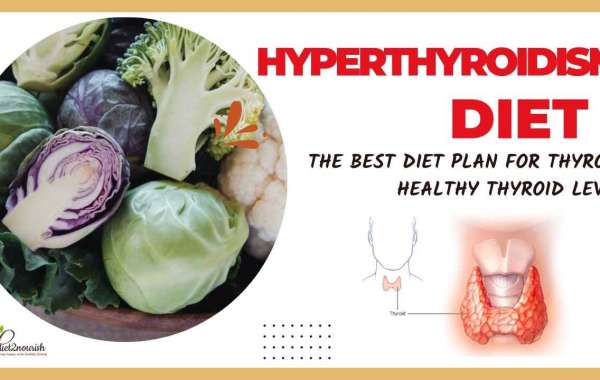While medication and medical treatments are typically prescribed to manage hyperthyroidism, adopting a healthy and balanced diet can also be beneficial in supporting thyroid function and managing symptoms associated with the condition. Here is a comprehensive guide to a hyperthyroidism diet
Focus on Nutrient-Dense Foods: Include a variety of nutrient-dense foods in your diet to support overall health and provide essential vitamins and minerals. Opt for fruits, vegetables, whole grains, lean proteins, and healthy fats. These foods contribute to a well-balanced diet and help maintain optimal metabolism.
Moderate Iodine Intake: Iodine is necessary for the production of thyroid hormones. However, excessive iodine intake can worsen hyperthyroidism symptoms. Consume moderate amounts of iodine-rich foods such as seaweed, fish, dairy products, and eggs. Consult with a healthcare professional or registered dietitian to determine the appropriate iodine intake for your specific condition.
Limit Caffeine and Stimulants: Caffeine and other stimulants can exacerbate symptoms of hyperthyroidism, including anxiety and irritability. Reduce your consumption of caffeinated beverages like coffee, tea, and energy drinks. Opt for decaffeinated versions or herbal teas instead.
Manage Goitrogens Intake: Goitrogens are substances that can interfere with thyroid function by inhibiting the absorption of iodine. Cooking or lightly steaming goitrogenic foods such as broccoli, cauliflower, cabbage, Brussels sprouts, kale, and spinach can help reduce their goitrogenic effects.
Anti-Inflammatory Foods: Chronic inflammation can be a concern in individuals with hyperthyroidism. Include foods rich in omega-3 fatty acids, such as fatty fish (salmon, mackerel, sardines), flaxseeds, chia seeds, and walnuts. These foods help reduce inflammation and support overall health.
Adequate Calorie Intake: Hyperthyroidism can lead to weight loss and increased calorie needs. Ensure you consume enough calories to meet your body's energy requirements. Include healthy sources of carbohydrates, proteins, and fats in your meals to maintain a healthy weight.
Hydration: Stay adequately hydrated by drinking plenty of water throughout the day. Dehydration can worsen symptoms of hyperthyroidism, so it's important to prioritize fluid intake.
Regular Meals and Snacks: To manage increased appetite or weight loss associated with hyperthyroidism, consider consuming regular meals and snacks. This approach can provide a steady supply of nutrients and prevent excessive weight loss.
Limit Processed Foods and Refined Sugars: Processed foods and foods high in refined sugars offer little nutritional value and can contribute to inflammation and weight gain. Opt for whole, unprocessed foods whenever possible and limit your intake of sugary snacks, desserts, and beverages.
Professional Guidance: Consult a healthcare professional or registered dietitian for personalized guidance based on your specific condition, medications, and individual needs. They can provide tailored advice, monitor your progress, and make necessary adjustments to your diet plan.
It's important to note that a hyperthyroidism diet should be used as a complementary approach alongside medical treatments and under the guidance of a healthcare professional. They will monitor your condition, provide appropriate medical management, and ensure that your diet supports your overall health and well-being.








